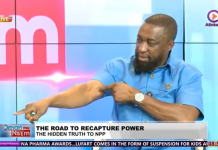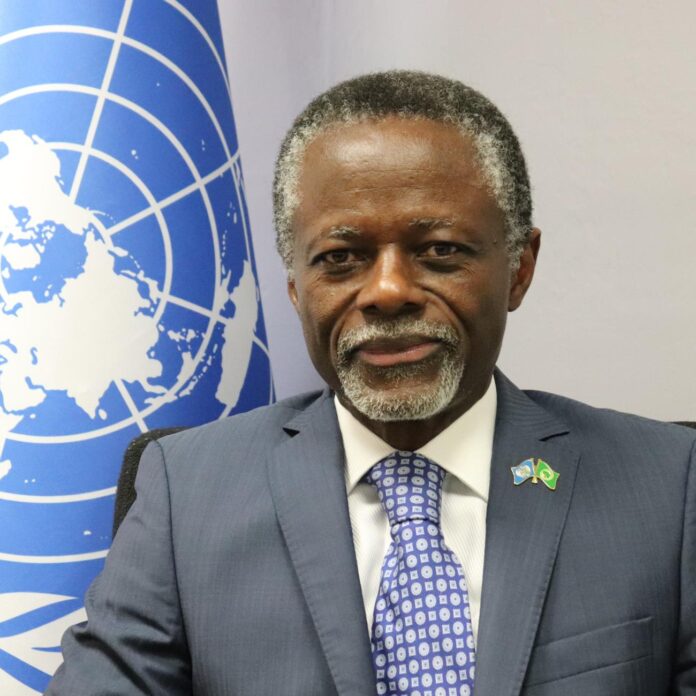On 25 May 2024, the African Union (AU) marks a momentous milestone, the 20th Anniversary of the Peace and Security Council (PSC). African leaders were visionary, strategic, and ambitious when outlining the objectives of the PSC. The Assembly mandated the PSC to: promote peace, security and stability in Africa, in order to guarantee the protection and preservation of life and property, the well-being of the African people and their environment; anticipate and prevent conflicts; promote and implement peace-building and post-conflict reconstruction activities to consolidate peace and prevent the resurgence of violence; coordinate and harmonize continental efforts in the prevention and combating of international terrorism; develop a common defense policy for the African Union; and promote and encourage democratic practices, good governance and the rule of law, protect human rights and fundamental freedoms, and respect for the sanctity of human life and international humanitarian law.
In the short twenty years since its founding, the PSC has demonstrated leadership, foresight, and a strong commitment to the values and principles outlined in the Constitutive Act and the Protocol relating to the Establishment of the Peace and Security Council. The PSC has engaged constructively in averting conflict situations or their escalation, for example between South Sudan and Sudan following skirmishes over the Heglig oil fields in 2012. As well as its vital commitments in Somalia through the African Union Mission in Somalia (AMISOM) and the African Union Transition Mission in Somalia (ATMIS). The Council closely monitors conflict situations across the continent, often undertaking field missions to get a first-hand assessment of dynamics and to engage with parties to conflict and local communities. The AUPSC has established clear principle-based modalities for responding to unconstitutional changes of government, and provides critical support and guidance to AU mediation mechanisms for the prevention and resolution of conflict, such as the Panel of the Wise, FemWise, and WiseYouth. The PSC also launched and continues to oversee the implementation of important initiatives, such as Silencing the Guns and its master roadmap of practical steps for implementation.
As a consequence of these achievements, the PSC has firmly established itself within the global collective security system. It maintains strong relations with the United Nations Security Council through formal joint consultative meetings, held annually for the last 17 years, as well as informal coordination meetings, held monthly, between the Chairperson of the PSC and President of the Security Council, and also through regular meetings between the PSC and the three African members of the Security Council (A3). Moreover, the PSC holds consultative meetings with the UN Peacebuilding Commission, and its counterpart in the European Union. These interactions underscore the imperative of African ownership and agency in addressing threats to peace and security on the African continent. The achievements of the PSC have been registered against a backdrop of several multi-layered challenges, and it is therefore to be commended for its perseverance and creativity in responding to conflicts, and the fidelity that it has demonstrated to the principles contained in its founding documents.
The PSC has also had to work within human and financial resource constraints, which has resulted in it not being fully optimized in the manner envisaged in the Protocol. However, there has been commendable progress on this issue in recent years, with the revitalization of the Peace Fund, a critical mechanism of the African Peace and Security Architecture. The Peace Fund is now endowed with almost $400 million, which is being deployed for various peace initiatives including conflict prevention, mediation, and peace support operations. As an ex-officio Member of the Peace Fund Board of Trustees, representing the United Nations, I can testify to the determination of the leadership of the African Union to deploy more of its own resources towards such initiatives, while at the same time promoting partnerships that seek to advance regional and global peace and security.
Another challenge, as eloquently stated by the Chairperson of the AU Commission, Moussa Faki Mahamat at the opening session of the Summit in February this year, is that the PSC has often faced challenges to its authority from entities both within and outside the continent who blithely ignore or violate its decisions. Conversely, and as acknowledged by regional actors themselves, legitimate sovereignty claims have oftentimes been inadequately invoked to hamper much needed early warning and early action initiatives to advert conflict with catastrophic consequences for people, property and peace both at national and regional levels.
Looking ahead, and as clearly stated in the United Nations Secretary-General’s Antonio Guterres’ ‘A New Agenda for Peace’, regional arrangements have become increasingly relevant in the face of growing competition at the global level and threats that are increasingly transnational. The United Nations Secretary-General therefore considers regional arrangements as critical building blocks for a networked multilateralism and has throughout his tenure championed stronger partnerships between the UN and the AU, including support to AU peace support operations financed through UN assessed contributions.
By virtue of its unparalleled legitimacy and its unprecedented normative framework, underpinned by the twin principles of non-interference and non-indifference, the PSC is uniquely positioned to advance political solutions in Africa through a more forward leaning conflict prevention approach, consistent with the continent’s strong regional integration agenda. The PSC has 20 years of experience and achievement to contribute effectively to a new networked multilateral system. It is imperative that the PSC continues to exercise leadership in advancing principled and comprehensive responses to the continent’s peace and security challenges, working collaboratively with other organizations, notably the United Nations, within a global collective security system.
The United Nations will continue to work closely with the PSC, and the African Union as a whole, in a spirit of solidarity, mutual respect and trust. I look forward to increased collaboration between our two organizations as we continue to work towards the attainment of the aspirations of the AU’s Agenda 2063: The Africa We Want, and the UN’s 2030 Agenda for Sustainable Development in the genuine spirit of two agendas, one framework.
Joyeux anniveraire, PSC@20! Hongera; Congratulations; Félicitations!


























